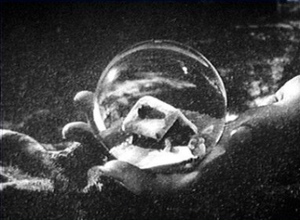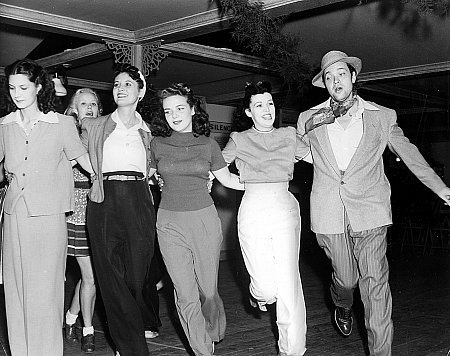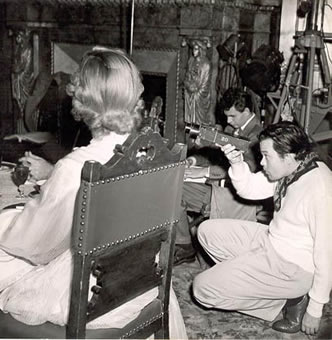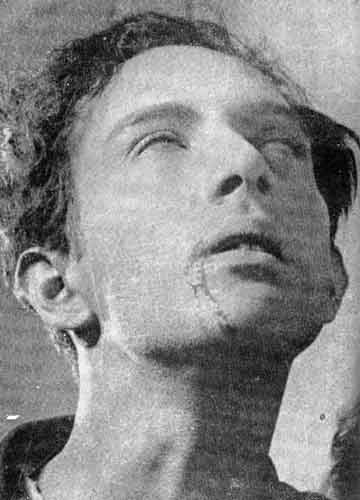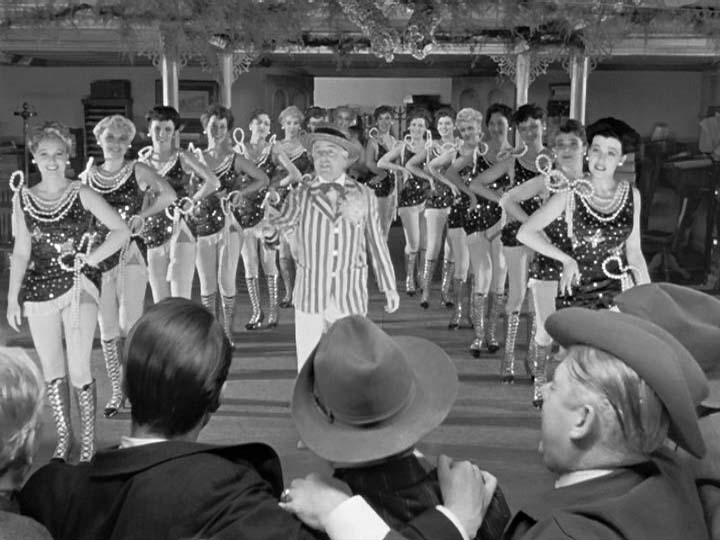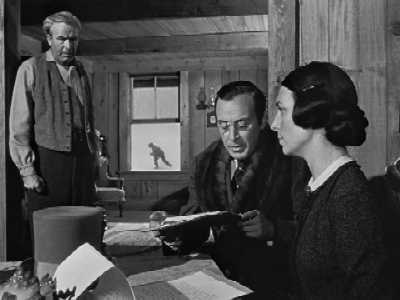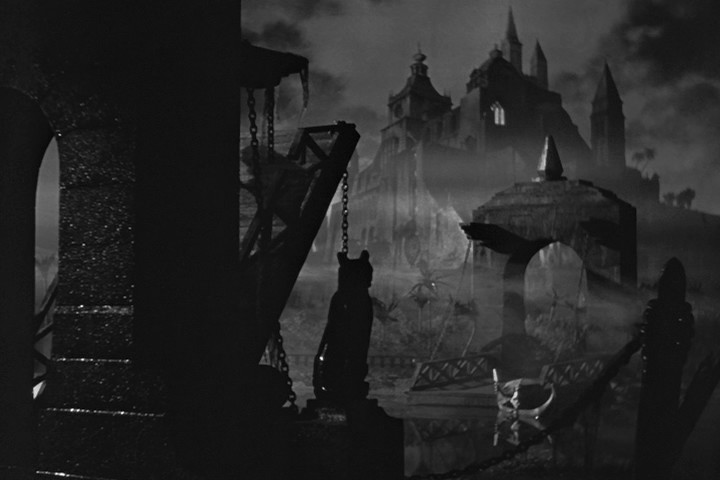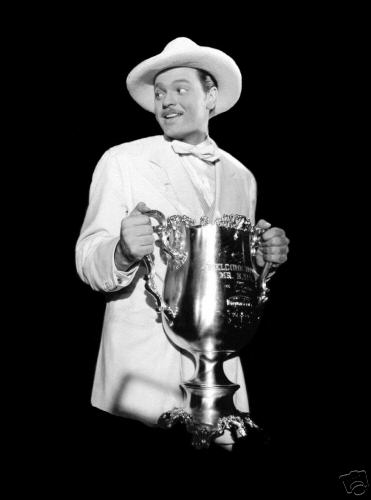Citizen Kane
Written by Joe D on December 3rd, 2007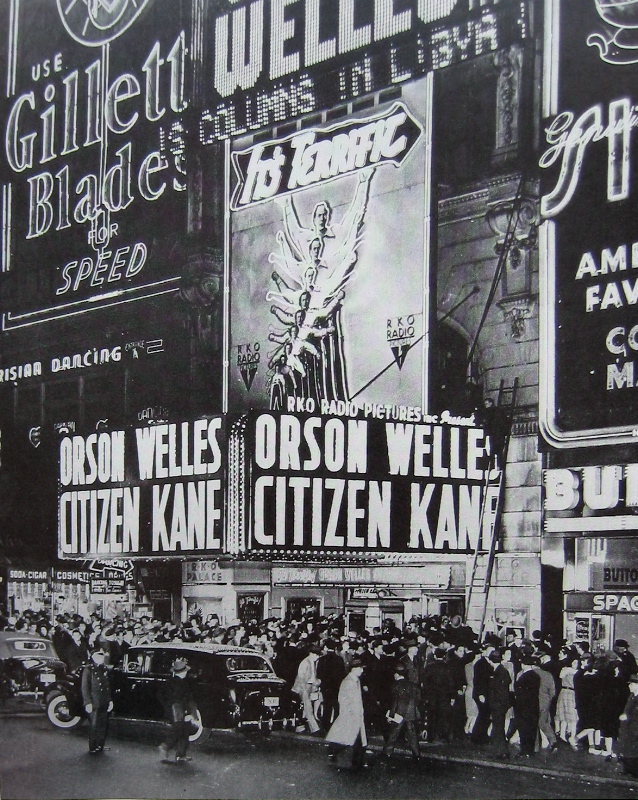
TCM did it again. They showed a movie that got me thinking and then got me writing. The case in point, Orson Welles incredible directorial debut Citizen Kane.
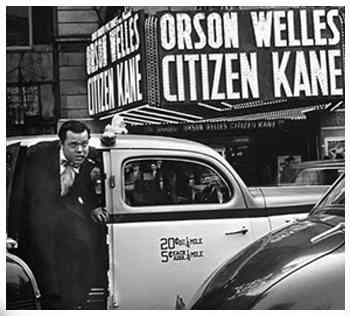
Welles was a wunderkind, playing The Shadow and directing and starring in his Mercury Theater Radio dramas, a lot of which were adaptations of great literature. But it was The War Of The Worlds that really launched young Orson into the Stratosphere of Fame. It was a huge scandal with stories of panicked listeners drinking poison, committing suicide, going crazy. My father heard the broadcast as a youngster, he said the thing that really unnerved him was the use of real street names in the broadcast, “They’re attacking the Pulaski Skyway…”. I am reminded of the beginning of another Cinematic career that started with a scandal. Luis Bunuel andUn Chien Andalou. The slicing of the Eyeball vs. the Shattering of the Snow Globe.
Violated Optical Orbs
Due to his gigantic popularity Welles was offered carte blanche at RKO, an unprecedented amount of creative control. He began developing an adaptation of Joseph Conrad’s Heart Of Darkness, the type of material he worked with on his Mercury Radio productions, but after a few months abandoned the idea due to budgetary limitations. Many years later another Cinematic Giant would struggle to bring his version of this story to the screen, I’m referring of course to Francis Coppola’s Apocalypse Now. Welles then switched gears and developed a screenplay with Herman Mankiewiscz, Kane. Another coincidence, I know Christopher Mankiewiscz, the nephew of Herman, he told me he was related to Joseph Conrad! Welles kept it in the family!
Orson Horsin’ around with the dancing girls, Kane rehearsal
Shooting Kane
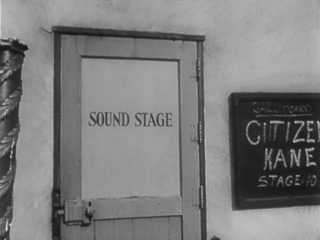
Despite protestations to the contrary it certainly seemed that Kane was based on the life of William Randolph Hearst. Hearst’s fortune was based on a silver mine in Colorado, so was Kane’s, Hearst created the Spanish American War through his muckraking newspapers, so did Kane. Hearst obsessively collected Art in Europe and sent it back to his Xanadu (Hearst Castle) , the married Hearst carried on an affair with a blonde entertainer(Marion Davies) so did Charlie, and finally as legend has it, Rosebud was Hearst’s nickname for Marion Davies clitoris! That’s pretty wild! Probably the most well known, important word ever uttered in Cinema and it refers to a woman’s sex organ! Not only that but the shot where Kane utters his fateful last word is an extreme close up of his mouth, his lips fringed on top by a mustache mouthing “Rose..Bud, the image is undeniably sexual, vagina-like.
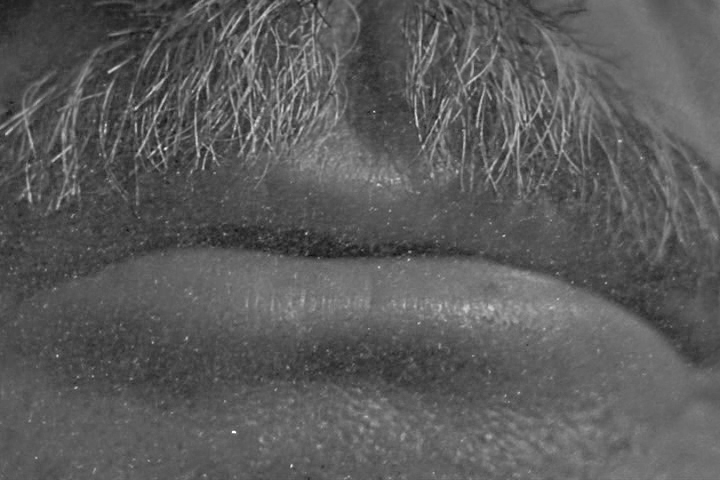
Rose…Buddd…
The snow globe drops, rolls from Kane’s paralyzed hand, loss of control, then bursts with a splash, ejaculation! What happens next? He dies, the orgasm is also known as the little death, another parallel to Un Chien Andalou.
Un Petit Morte
It’s fitting, it captures the whole phenomenon of Film, a creative endeavor capable of flights of the most amazing beauty, of the loftiest intellectual speculation, rumination operating through our emotions, our sex drive, our blood lust.
There is a man, A certain Man…Good Old Charley Kane!
Watching Kane again I was struck by it’s tone. It’s emotional tone is unique in Cinema, kind of a melancholy, removed storytelling. You’re never involved in Kane in a normal identifying way. You don’t sit there and think ” Come on Charlie, don’t fire Jed Leland! or Don’t leave your wife for that floozy!”. You watch fascinated, I think Welles chose not to manipulate the audience through conventional emotional storytelling. It’s got an icy cold grip on your mind. Maybe this is why I didn’t love Citizen Kane as a kid watching it on TV. I watched it mesmerized but I enjoyed King Kong more. Kane succeeds where Radio succeeds. Radio conjures worlds of fantasy in your mind through dialog, acting, sound effects, music. Kane through it’s incredible technique does the same thing. The Freedom of Creativity expressed by it’s images, it’s brilliant , light years ahead of it’s time. The scene where the investigating reporter reads Mr. Thatcher’s manuscript for example. The perfect Victorian handwriting, obviously done with a quill, the whiteness of the paper gradually giving way to a young Charles Foster Kane playing in the Colorado snow. The low angles in the Kane household, Agness Morehead’s beautiful performance as The Mother who wanted to give her boy a better life.
Deep Focus- Let Me Know If You Find The Snow Globe
Someone told me they saw the snow globe somewhere in this scene, where Agness is signing the papers to give control of her fortune and her son to Mr. Thatcher, but I can never see it! Maybe I get so caught up in this scene every time I watch it that it eludes me. You look for it and see if you can find it. The amazing scene outside the Kane house where Mr. and Mrs. K introduce young Charlie to Mr. Thatcher.

Just listen to this scene, the perfect timing and this is with a child actor! It’s like a Radio Play, brilliant.
Sloppy Joe’s, Watchamacallit,Xanadu
Maybe because it’s all about remembrance, the past. Old people talking about their youth. Does anyone in this movie love Charles Foster Kane? Even his mother? She sent him away. What a strange story for a young Orson Welles to tell. A story of the ultimate “primitive accumulator” trying to fill his empty life with things.


